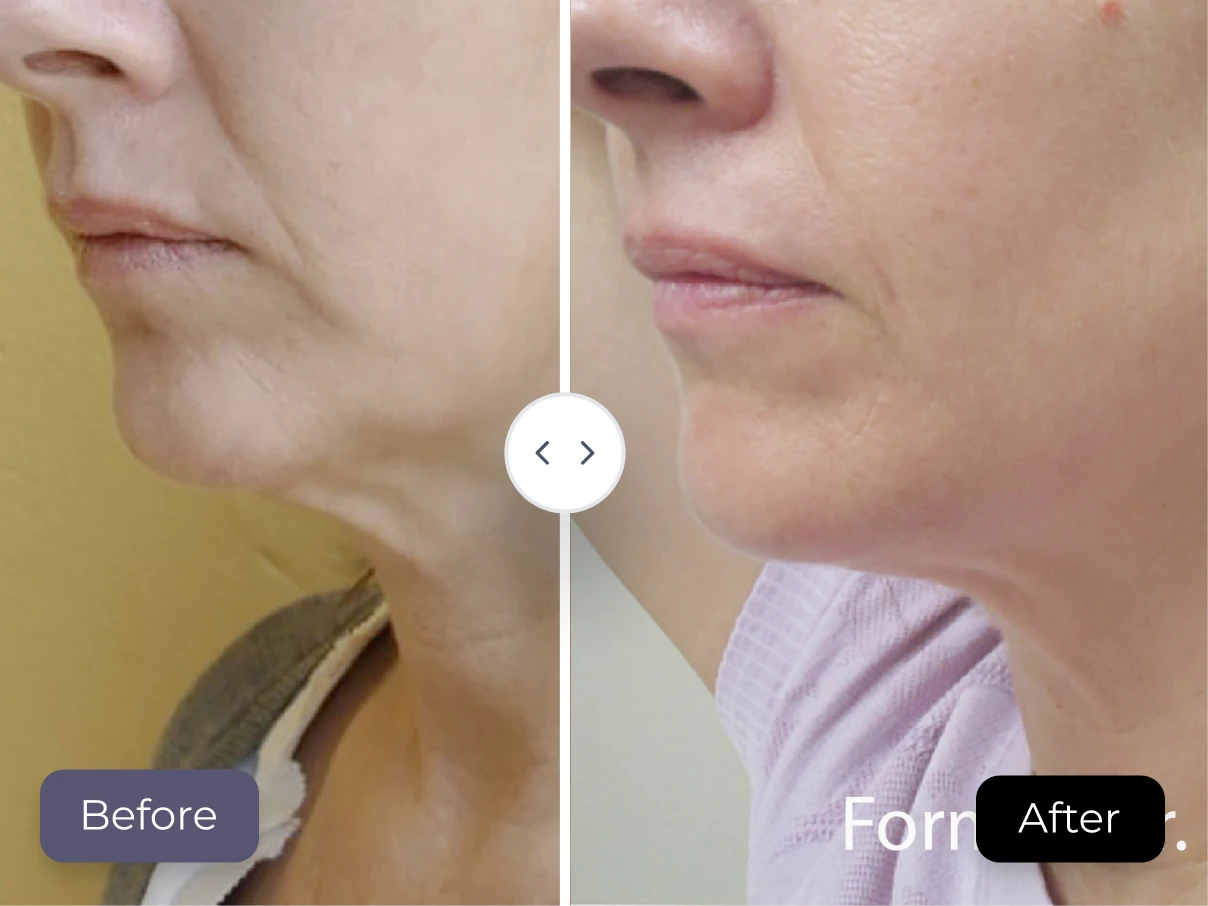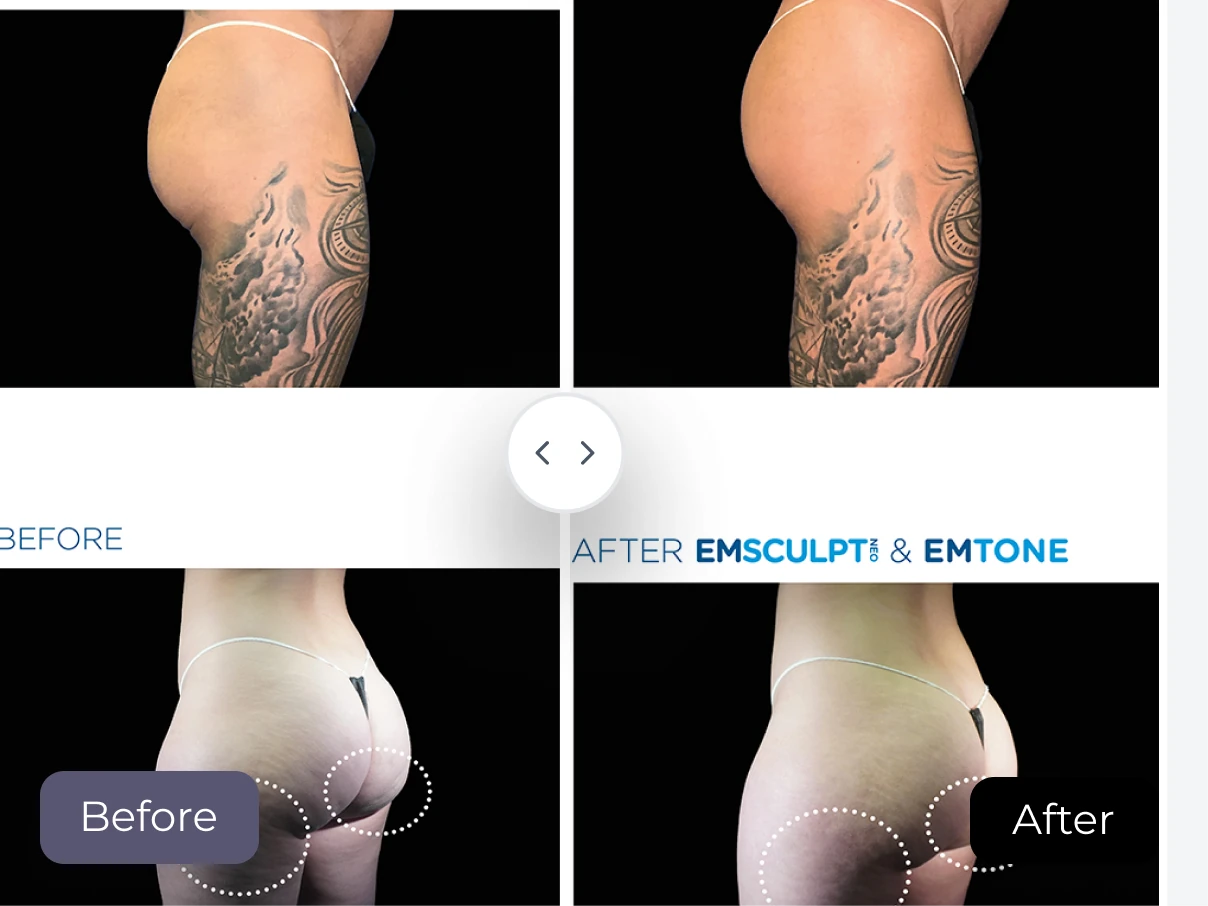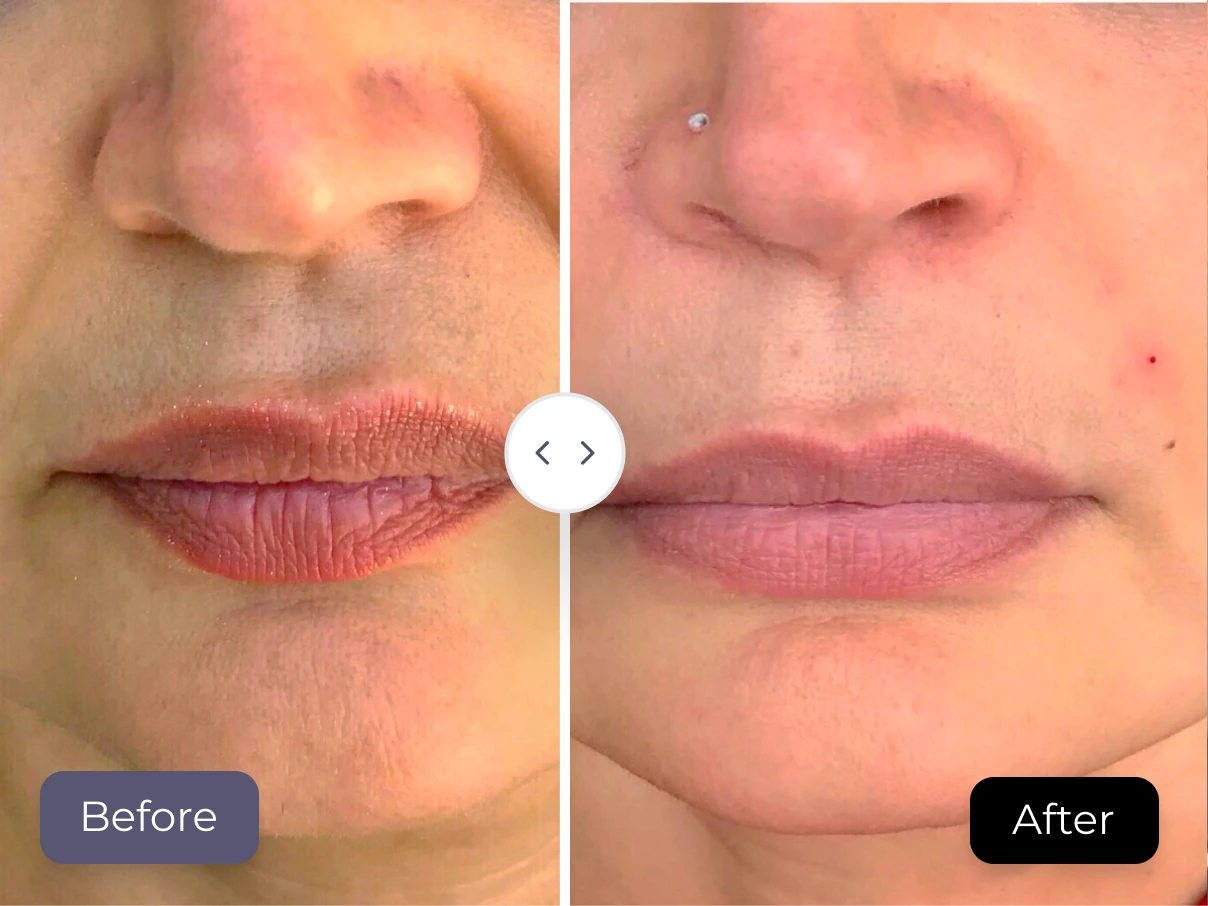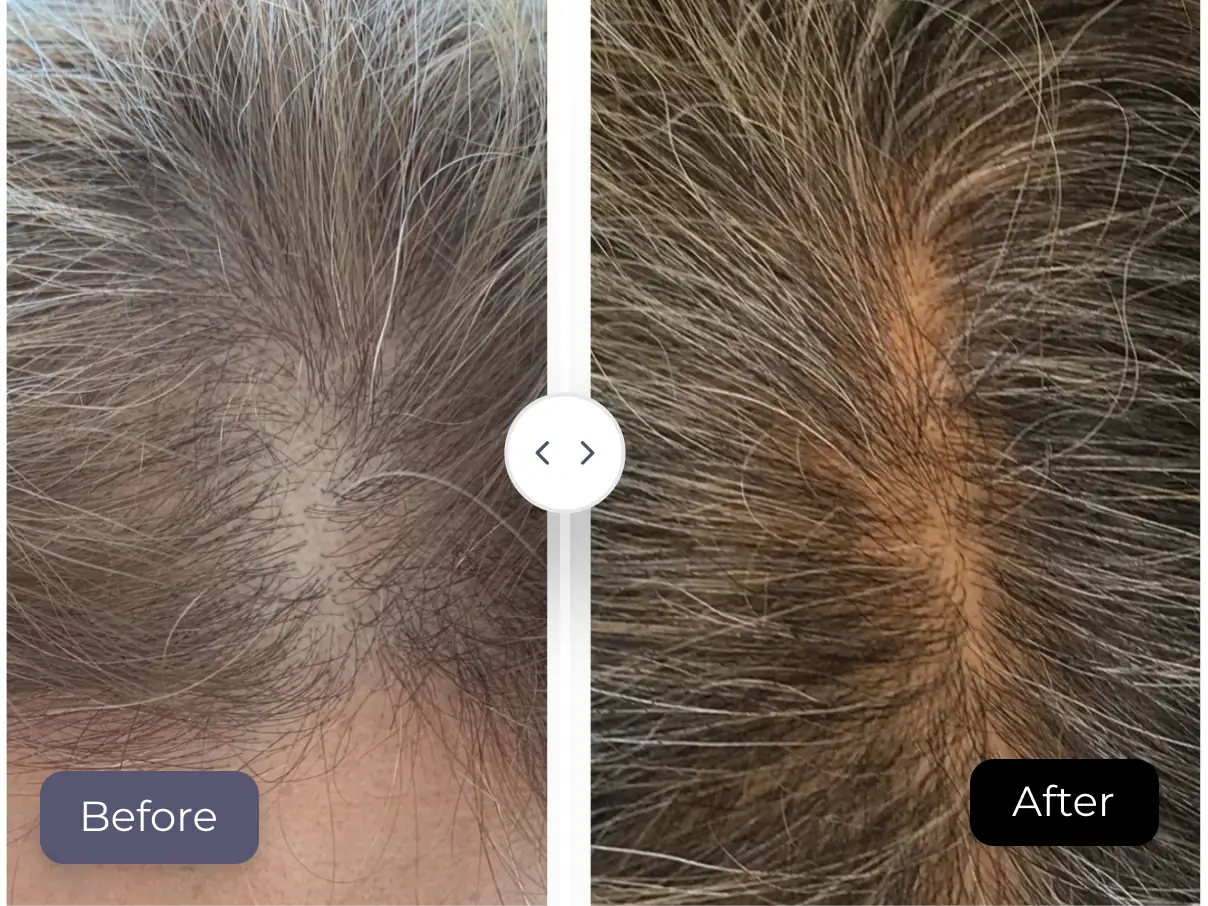Collagen supplements have become a buzzword in the skincare world, praised for enhancing skin elasticity, reducing wrinkles, and boosting hydration. With claims of reversing aging signs and restoring youthful skin, they’ve gained immense popularity among health-conscious individuals and beauty enthusiasts alike.
This guide dives into the science behind collagen supplements, exploring whether they truly work and how they compare to natural collagen-boosting methods. If you’ve ever wondered, “Do collagen supplements really work for wrinkles?” or “Are there better ways to achieve the same results?”—you’re in the right place.
Let’s uncover the facts to help you decide if these supplements belong in your skincare routine.
What is collagen, and why does it matter for your skin?
Collagen, the most abundant protein in the body, serves as a structural foundation for skin, hair, nails, and connective tissues. Often described as the glue that holds everything together, it provides skin with strength, elasticity, and firmness.
In skin health, collagen supports elasticity, hydration, and the reduction of fine lines and wrinkles by forming a supportive network within the dermis. However, as we age, natural collagen production declines due to biological processes and external factors like UV exposure, leading to sagging skin, dryness, and visible wrinkles.
This decline has sparked interest in collagen supplements, which promise to replenish lost collagen and restore skin’s youthful vitality.
How Your Body Produces Collagen and What Impacts It
Collagen is naturally produced in the body through a complex process that relies on amino acids like glycine, proline, and hydroxyproline, which are derived from protein-rich foods. These amino acids combine with essential vitamins and minerals—particularly Vitamin C, zinc, and copper—to create collagen strands that support your skin’s structure.
However, several factors can disrupt this process and reduce collagen levels:
- Aging: Collagen production declines significantly after age 25, leading to visible signs of aging such as sagging skin, reduced elasticity, and wrinkles.
- Environmental Stressors: UV rays, pollution, and smoking accelerate collagen breakdown, weakening your skin’s resilience.
- Poor Nutrition: Deficiencies in amino acids, Vitamin C, or zinc hinder collagen synthesis.
- Lifestyle Choices: Chronic stress, sleep deprivation, and excessive sugar intake contribute to collagen depletion through processes like glycation, which damages collagen fibers.
While collagen production naturally slows with age, adopting natural ways to boost collagen production—such as eating a balanced diet, staying hydrated, and using skincare products enriched with peptides and retinoids—can help sustain your skin’s firmness and vitality over time.
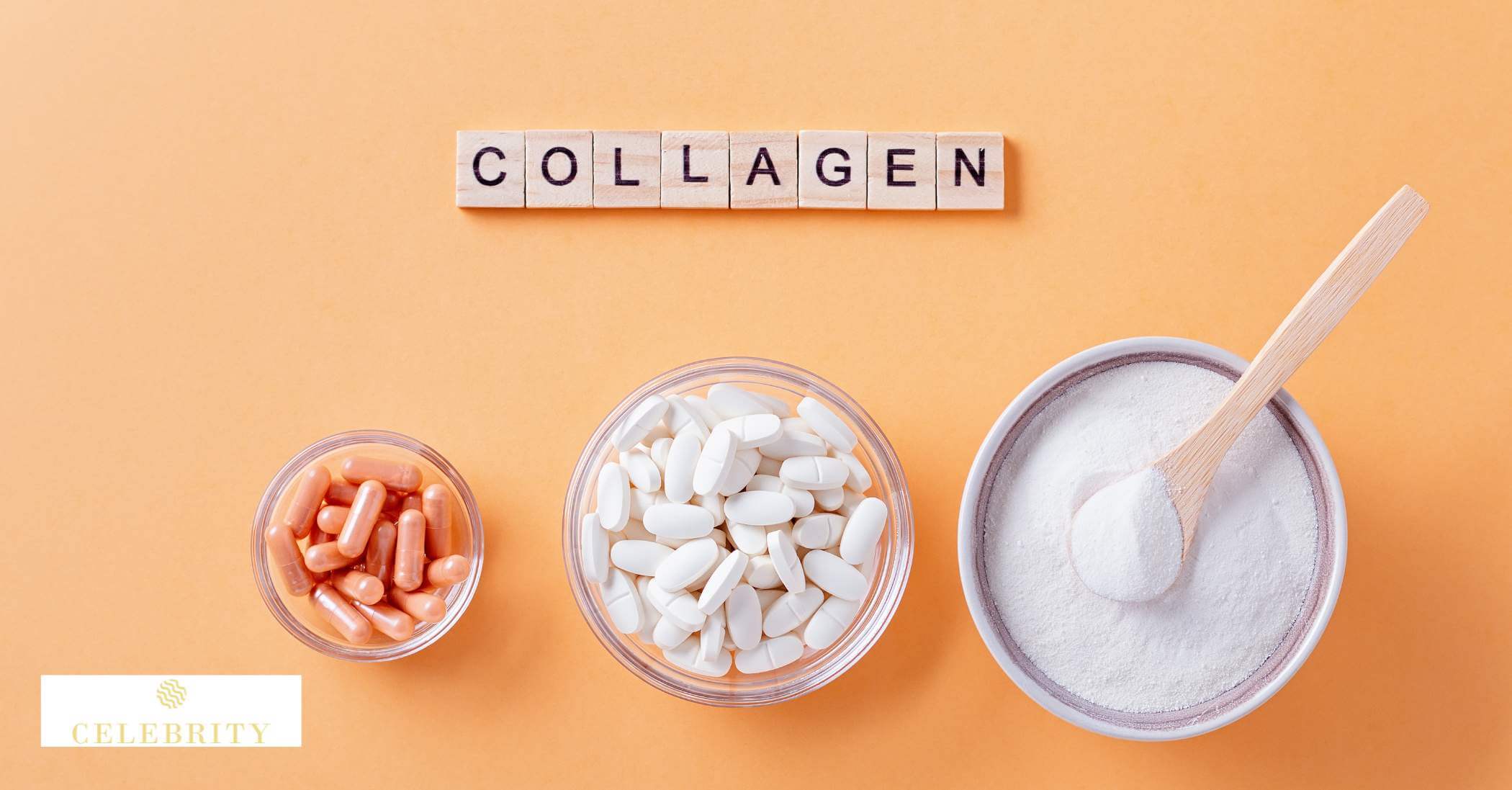
Do collagen supplements improve skin health?
Collagen supplements have gained popularity as a potential solution for maintaining youthful skin and addressing the natural decline in collagen levels that occurs with age. These supplements come in various forms, including powders, capsules, and drinks, each offering unique benefits for improving skin health.
They are especially noted for their ability to enhance skin elasticity, improve hydration, and reduce the appearance of wrinkles. However, their effectiveness often depends on factors such as the supplement’s bioavailability, consistent use, and the individual’s age and lifestyle.
Collagen Supplements: Sources, Types, Benefits, and Uses | |||||
| Type | Source | Key Benefits | Best For | Limitations | Example Products |
| Hydrolyzed Collagen (Collagen Peptides) | Bovine, Marine, Porcine | Easily Absorbed; Improves Skin Elasticity and Hydration | Anti-Aging, Joint Health, Skin repair | Requires Consistent Use for Visible Effects | Powders, Capsules, Drinks |
| Gelatin | Bovine, Porcine | Boosts Collagen Synthesis; Supports Gut Health | Skin Repair, Gut Health | Limited Bioavailability; Less Effective for Skin | Gelatin Powders |
| Marine Collagen | Fish | High Bioavailability; Enhances Skin Hydration and Elasticity | Skin Hydration, Anti-Aging | More Expensive; Potential Allergen (fish) | Powders, Capsules |
| Bovine Collagen | Cow (Hide or Bone) | Contains Type I & III Collagen; Improves Skin and Bone Health | Overall Skin Health, Bone Density | May Not Suit Vegetarians/Vegans | Powders, Capsules |
| Chicken Collagen | Chicken Cartilage | Rich in Type II Collagen; Supports Cartilage and Joints | Joint Health, Anti-Aging | Limited Benefits for Skin | Capsules, Drinks |
| Plant-Based Collagen Boosters | Algae, Plant Extracts | Stimulates Natural Collagen Production; Vegan-Friendly | Vegan-Friendly Anti-Aging Solutions | Does Not Directly Provide Collagen | Powders, Gummies |
Sources of Collagen Supplements
Collagen supplements are derived from a variety of sources, each tailored to specific needs and preferences:
- Fish (Marine Collagen): Known for its high bioavailability, marine collagen is absorbed more efficiently by the body, making it a popular choice for improving skin elasticity and hydration.
- Cows (Bovine Collagen): Derived from cow hides or bones, bovine collagen contains Types I and III collagen, which are beneficial for skin health, bone density, and connective tissues.
- Chicken Collagen: Primarily rich in Type II collagen, chicken collagen is often used for joint health rather than skin benefits.
Choosing the right collagen source depends on dietary restrictions, allergies (e.g., fish or bovine-derived collagen), and desired outcomes, such as skin improvement or joint support.
Types of Collagen Supplements
Different types of collagen supplements cater to various needs, providing options to suit diverse preferences and goals:
Hydrolyzed Collagen (Collagen Peptides)
Hydrolyzed collagen, or collagen peptides, is broken down into smaller amino acids, making it easier for the body to absorb. This highly versatile form is commonly available in powders and capsules, often used for improving skin elasticity and hydration.
Gelatin
Derived from partially hydrolyzed collagen, gelatin is a less bioavailable option primarily found in food products. While it can support collagen production, it is not as effective as hydrolyzed collagen for skin benefits.
Marine Collagen
Sourced from fish scales or skin, marine collagen is rich in Type I collagen, which is essential for skin health. Its smaller molecular size enhances absorption, making it ideal for boosting skin hydration and elasticity.
Bovine Collagen
Bovine collagen, obtained from cow hides or bones, contains Types I and III collagen. These types support skin health, bone density, and connective tissue integrity, making it a well-rounded choice for overall wellness.
Vegan Collagen Alternatives
True collagen is animal-derived, but plant-based collagen boosters aim to stimulate natural collagen production. These vegan-friendly options use nutrient-rich ingredients and amino acids to encourage the body to produce collagen naturally.
Why Choose Collagen Supplements?
Collagen supplements have become a popular choice for improving skin health, thanks to their ability to combat wrinkles, enhance skin elasticity, and boost hydration. These supplements offer a convenient way to address collagen depletion, which naturally occurs with age.
However, their effectiveness relies on key factors such as bioavailability (how well the body absorbs the supplement), proper dosage, and consistent use over time. When combined with a healthy lifestyle and skincare routine, collagen supplements can provide noticeable improvements in skin’s texture and overall appearance.
How long does it take for collagen supplements to work on the skin?
Collagen supplements typically require 8 to 12 weeks of consistent daily use to deliver noticeable improvements in skin elasticity, hydration, and wrinkle reduction. This timeframe is supported by clinical studies that have observed gradual yet measurable benefits with regular intake of hydrolyzed collagen peptides.
It’s important to note that individual results may vary based on factors such as age, lifestyle habits, and overall skin health. Those with healthier skin or younger individuals may notice changes sooner, while others may require more time for visible effects.
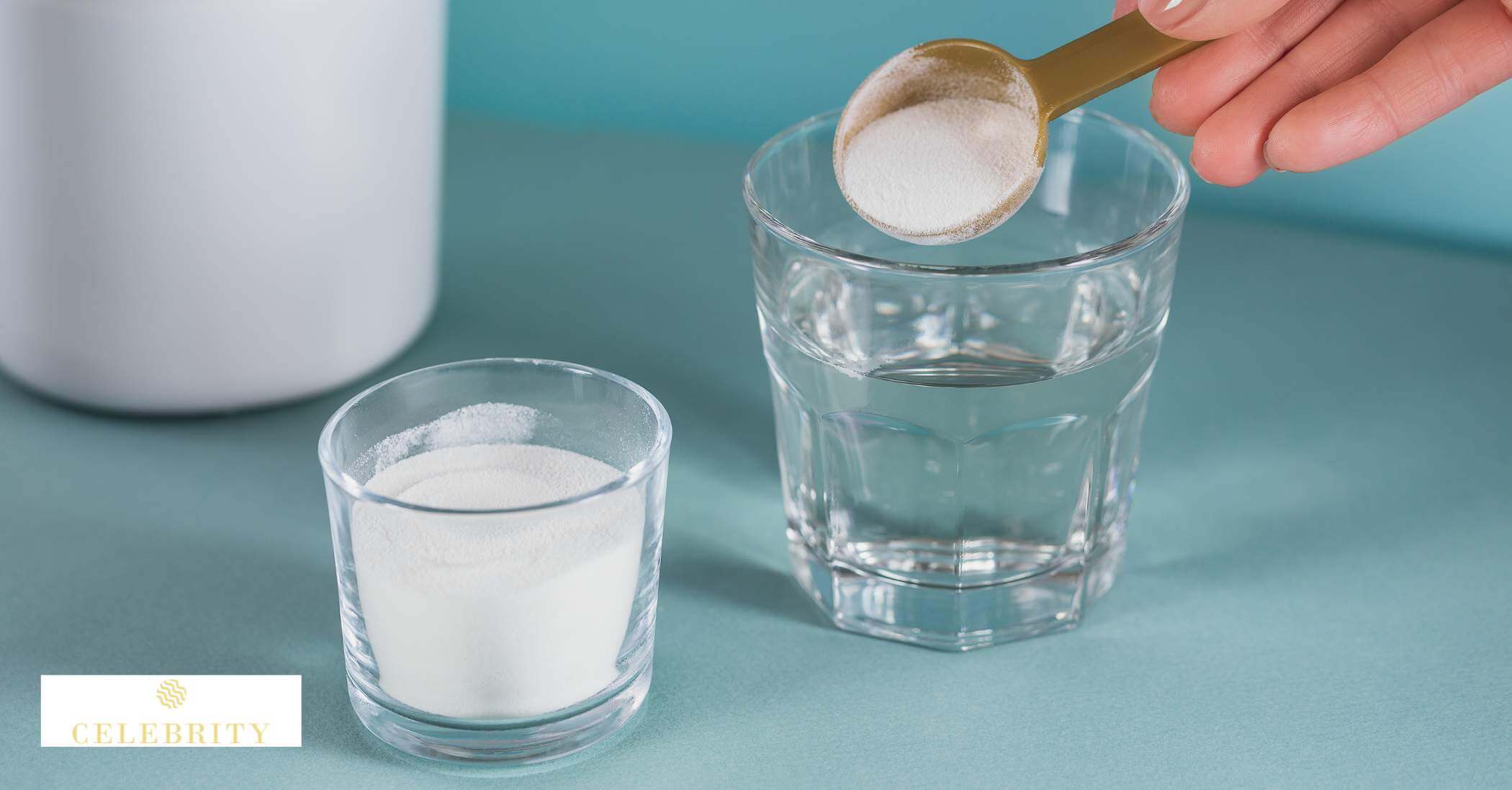
The Science Behind Collagen Supplements: Do they really work?
Research indicates that collagen supplements, particularly hydrolyzed collagen peptides, can positively affect skin health. Clinical studies have shown that regular oral intake improves skin hydration, elasticity, and wrinkle reduction, making collagen supplementation a promising anti-aging solution.
Key Findings
Here’s what research reveals about the effectiveness of collagen supplements in enhancing skin health.
Enhanced Skin Hydration
Clinical trials reveal that collagen supplements significantly increase skin moisture levels, resulting in plumper and healthier-looking skin. Participants taking hydrolyzed collagen peptides consistently reported higher hydration compared to placebo groups.
Improved Skin Elasticity
Evidence suggests that collagen supplementation increases collagen density within the dermis, enhancing skin elasticity. Over time, this leads to firmer and smoother skin.
Wrinkle Reduction
Studies demonstrate that consistent collagen intake can reduce fine lines and wrinkles, improving skin texture and minimizing visible signs of aging.
The Bigger Picture
While current results are encouraging, further research is needed to establish collagen supplements’ long-term efficacy and optimal dosage. To maximize benefits, collagen supplementation should be combined with a balanced diet, proper hydration, and a skincare routine that includes sun protection and active ingredients like retinoids.
How Collagen Supplements Improve Your Skin
When you consume collagen supplements, particularly hydrolyzed collagen, they are broken down into smaller amino acids during digestion. These amino acids are absorbed into the bloodstream and transported to various tissues, including the skin, where they act as essential building blocks.
In the skin, these amino acids encourage the production of natural collagen and elastin, key components for maintaining a firm and youthful appearance. Research suggests that collagen supplements may also stimulate fibroblasts—specialized cells responsible for collagen production—helping to enhance skin elasticity, hydration, and overall resilience.
By supporting the skin’s structural framework, collagen supplements address common aging concerns like dryness and fine lines, contributing to a deeper understanding of skin elasticity and its critical role in maintaining youthful skin.
However, individual results may vary depending on factors such as age, lifestyle, and the quality of the supplement. Selecting high-quality collagen products and adopting a balanced skincare and lifestyle routine can maximize their benefits.

Pros and Cons of Collagen Supplements
Collagen supplements are widely recognized for their skin-enhancing benefits, but it’s essential to weigh their advantages and limitations to make an informed decision.
Benefits of Collagen for Skin
Collagen supplements offer a variety of benefits for skin health, including:
- Improved Skin Elasticity: Research suggests that collagen supplements can enhance skin elasticity, making it firmer and more youthful-looking.
- Enhanced Hydration: By boosting moisture retention, collagen helps combat dryness and promotes a healthier, more radiant complexion.
- Wrinkle Reduction: Consistent collagen intake may reduce fine lines and wrinkles over time, improving overall skin texture.
- Convenience: Collagen supplements are easy to incorporate into daily routines, providing a hassle-free way to support skin health.
Limitations to Consider
While collagen supplements are promising, there are some important limitations to keep in mind:
- Lack of Conclusive Evidence: Although many studies highlight positive results, the long-term effects and optimal dosage of collagen supplements are not yet well established, requiring further research.
- Individual Variations: The effectiveness of collagen supplements can vary greatly based on factors such as age, skin type, and lifestyle, making outcomes unpredictable.
- Complementary Practices Needed: Collagen supplements work best when combined with top anti-aging skincare practices like sunscreen use, a balanced diet, and a proper skincare routine.
- Supplement Quality: Not all collagen supplements are created equal. Choosing high-quality products from trusted brands is crucial for achieving the desired results.
Collagen Supplements: Safety Profile and Potential Side Effects
Collagen supplements are widely regarded as safe for most individuals when used as directed. However, understanding their safety profile and potential side effects is essential before incorporating them into your skincare or wellness routine.
Safety Profile
Collagen supplements are typically sourced from natural ingredients, such as fish (marine collagen), bovine, or porcine collagen. These sources make them generally well-tolerated by the body. Studies also indicate that hydrolyzed collagen is easy to digest and has a low likelihood of causing significant adverse effects.
Potential Side Effects
While collagen supplements are safe for most people, mild side effects may occur in some cases, such as:
- Digestive Discomfort: Symptoms like bloating, gas, or stomach upset may arise, particularly with high doses.
- Aftertaste: Some individuals report a lingering taste after consuming collagen supplements.
- Allergic Reactions: Those with allergies to specific sources, such as fish, shellfish, or eggs, should exercise caution, as allergic reactions are possible.
Precautions
- Consult a Professional: Pregnant or breastfeeding individuals, or those with chronic medical conditions, should speak with a dermatologist or healthcare provider before starting collagen supplements.
- Choose Quality Products: Opt for supplements that are verified by third-party testing to ensure safety and purity.
- Follow Recommended Dosages: Avoid exceeding the suggested dosage, as doing so may increase the likelihood of side effects.
Understanding the potential benefits and safety of collagen supplements is a crucial step in determining whether they are the right addition to your skincare or wellness regimen.

Natural Methods to Boost Collagen Production
While collagen supplements can benefit many individuals, natural methods can also effectively support your body’s collagen production. These approaches—spanning diet, skincare, and lifestyle habits—can enhance skin elasticity and hydration without the need for supplements.
Dietary Approaches
A nutrient-rich diet is essential for stimulating collagen production naturally. Focus on foods that supply the necessary vitamins, minerals, and amino acids:
- Vitamin C-Rich Foods: Citrus fruits, leafy greens, berries, and bell peppers are excellent sources of Vitamin C, which is crucial for collagen synthesis.
- Amino Acid Sources: Bone broth, chicken, fish, eggs, and beans provide glycine, proline, and other amino acids essential for collagen formation.
- Zinc and Copper-Rich Foods: Nuts, seeds, shellfish, and whole grains supply minerals vital for collagen production.
Skincare Practices
Incorporating the right skincare products into your routine can promote collagen synthesis and improve skin health:
- Retinoids: Vitamin A derivatives stimulate collagen production and reduce the appearance of fine lines and wrinkles.
- Chemical Exfoliants: Products containing AHAs (alpha hydroxy acids) or BHAs (beta hydroxy acids) encourage cell turnover, supporting collagen growth.
Regular use of these products can improve skin texture, firmness, and overall vitality.
Healthy Lifestyle Habits
Adopting healthy lifestyle habits can further boost your body’s collagen production:
- Stay Hydrated: Drinking plenty of water helps maintain skin hydration and supports the skin barrier.
- Get Quality Sleep: Adequate rest allows your body to repair and regenerate, supporting collagen synthesis.
- Avoid Smoking and Excess Alcohol: Both smoking and excessive alcohol consumption accelerate collagen breakdown, leading to premature aging.
Conclusion
Collagen supplements, especially hydrolyzed collagen, have gained significant attention for their potential to improve skin elasticity, hydration, and reduce wrinkles. While research supports the idea that collagen supplementation can enhance skin health, it’s essential to note that results may vary based on factors like age, skin type, and overall skincare routine.
Although collagen supplements can be a valuable addition to an anti-aging regimen, they are not a magic solution. Their effectiveness is maximized when combined with healthy lifestyle choices, including a balanced diet, proper hydration, and skincare practices such as retinoids or chemical exfoliants. For those exploring natural ways to boost collagen production, dietary changes, topical products, and healthy habits remain excellent alternatives.
Choosing whether collagen supplements are right for you ultimately depends on your unique skincare goals and preferences. If you’re unsure, consulting a dermatologist can help you identify the best approach to maintaining healthy, youthful skin. For personalized skincare advice or to learn more about collagen supplements, schedule a consultation with Celebrity Laser & Skin Care today and take the next step toward radiant skin.


